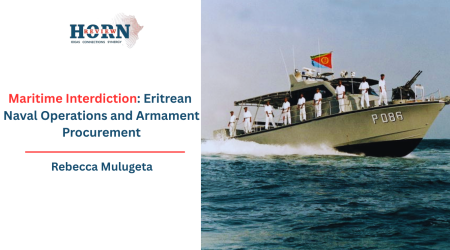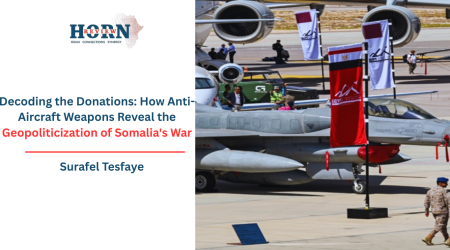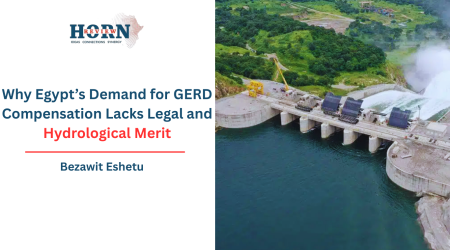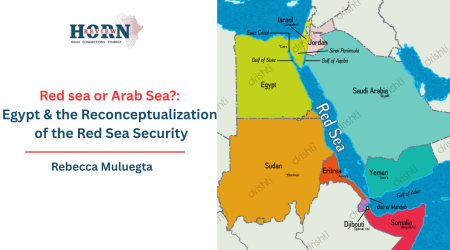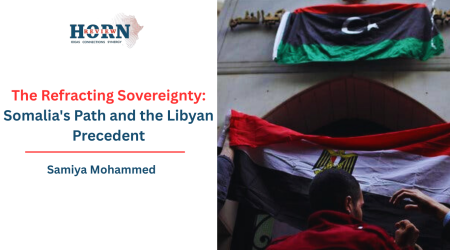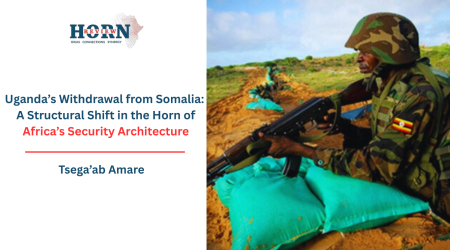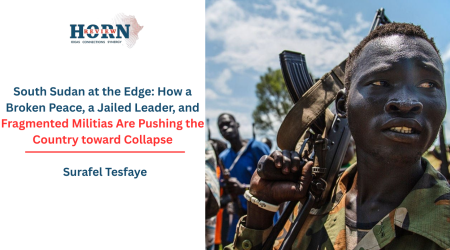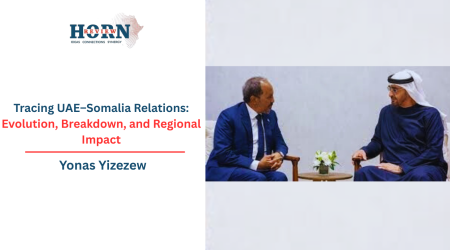
14
Aug
Fait Accompli on the Blue Nile: Why Egypt’s Bid to Encircle Ethiopia Will Falter
Egypt’s strategy to encircle and constrain Ethiopia is not new, but it has intensified dramatically since the Grand Ethiopian Renaissance Dam (GERD) became an unavoidable reality. It’s a calculated campaign of containment driven by profound water anxiety. Understanding its chances of success requires examining Egypt’s multi-pronged approach, the evolving dynamics of the Horn and Nile Basin, and Ethiopia’s pragmatic options in this high-stakes game.
Egypt’s historical posture towards upstream Nile states has often oscillated between neglect and dominance, cemented by colonial-era treaties it clings to, before the GERD shattering of this complacency. Recognizing the limits of bellicose rhetoric (seen during Mubarak and early Morsi eras) and the failure of outright obstruction, President Sisi’s regime has pivoted to a sophisticated strategy. He employed a range of direct and indirect measures aimed at constraining Ethiopia’s regional influence.
Firstly, by exploiting bilateral grievances, Egypt actively fuels existing tensions. It amplifies Sudan’s concerns over GERD’s operation and the unresolved Al-Fashaga border dispute, offering Khartoum political backing and vague promises of future water security (Donelli, 2022). In Somalia, it leverages anxieties about Ethiopian influence and port access (Berbera) to position itself as a counterweight, providing military aid and diplomatic support against perceived Ethiopian overreach (Donelli, 2024). It positioned itself to exploit any potential rift between Ethiopia and Somalia, and capitalized on the opportunity presented by the MoU to leverage their divisions. With Eritrea, it cautiously re-engages, mindful of Asmara’s frosty history with Addis Ababa and its desire for international rehabilitation, with the promise of offering economic and security lifelines.
Secondly, it employs economic incentives and infrastructure-focused diplomacy, by extending financial commitments and development investments across the region. Billions are pledged for development projects, infrastructure, and direct budget support in South Sudan, Sudan, Somalia, and beyond. The goal is to create economic dependencies and position Egypt as an indispensable partner, subtly encouraging alignment against Ethiopia. For instance, South Sudan’s vast wetlands (Sudd) are a particular focus, with investments aimed at securing alternative water resources and binding Juba closer to Cairo (Darbyshire, 2021).
Thirdly, it tries to create Nile Basin fragmentation. Egypt works tirelessly to undermine the Nile Basin Initiative (NBI) and prevent a unified upstream front. It signs separate bilateral water memoranda and cultivates individual relationships with Nile Basin leaders, emphasizing downstream “rights” and the “existential threat” of the GERD. Crucially, the visit of Ugandan President Museveni to Cairo exemplifies this tactic even though after a long effort. While Uganda is a key upstream nation and GERD partner, Egypt is offering significant investment packages and leveraging Uganda’s own complex regional calculations to create hesitation or extract concessions regarding future Nile cooperation that could indirectly pressure Ethiopia. However, Musevini’s statement that Nile talks should move beyond ‘focusing solely on historical rights’ rather support Ethiopia’s position, notifying that it’s a problem of approach.
Fourthly, by recognizing Ethiopia’s legitimate quest for diversified sea outlets, Egypt seeks to constrain its options. It strengthens ties with Djibouti (a traditional partner) and cultivates Somalia’s federal government in Mogadishu, aiming to limit or complicate Ethiopian port agreements. Most notably, Egypt continued international lobbying & narrative control. It relentlessly frames the GERD as an existential threat in international forums (UNSC, Arab League, AU) seeking external pressure on Ethiopia. It portrays its regional engagements as benign cooperation, casting Ethiopia as the destabilizing actor withholding water.
Will Egypt’s Strategy Succeed? Assessing the Realities
Egypt’s efforts are yielding tactical wins, signing MoUs, high-level visits, increased aid flows and amplified regional voices echoing some water concerns. However, achieving its strategic goal, isolating Ethiopia, halting or significantly curtailing GERD operations, and securing unchallenged historical Nile shares faces immense hurdles.
GERD’s irreversible momentum is now a reality, with construction fully completed and only its formal inauguration remaining. This is a fait accompli, giving Ethiopia the physical leverage. Neighbors know this and are increasingly focused on how to benefit (cheap electricity, flood control) rather than futilely opposing it.
Moreover, Ethiopia holds economic & geographic gravity. Ethiopia’s neighbors (Sudan, South Sudan, Uganda, Djibouti and Kenya) rely heavily on Ethiopia for trade routes, electricity, market access, and regional stability. Ethiopia is the Horn’s largest economy and most populous nation, risking that disrupting these ties for Egyptian promises carries enormous economic and political risk.
Regional leaders are primarily focused on domestic survival, economic development, and internal security. While they may accept Egyptian aid and voice concerns about the GERD as Sudan has, they are unlikely to engage in actions that provoke Ethiopian hostility or destabilize their own countries except potentially Eritrea. For instance, South Sudan desperately needs stability and Ethiopian power, while Somalia relies on Ethiopian troops against Al-Shabaab.
Additionally, Egypt’s heavy reliance on Arab League support and historical ambivalence towards African institutions (like the AU handling the GERD dispute) breeds suspicion. Portraying the dispute as “Egypt vs Ethiopia” often backfires, resonating with broader post-colonial narratives about resource sovereignty. However, Ethiopia skillfully frames the GERD as a symbol of African development.
For Egypt, funding largesse across multiple fragile states is expensive and unsustainable for a long-term creating overextension. With its own severe economic pressures, neighbors question Egypt’s long-term commitment and its ability to truly replace the tangible benefits of engagement with Ethiopia. Egypt’s containment campaign has produced notable short-term diplomatic wins in some States, but the underlying balance of power in the Nile Basin remains tilted by GERD’s completion and Ethiopia’s central role. These enduring realities limit Cairo’s ability to achieve its core objectives, opening the way for a more proactive Ethiopian counter-strategy.
In order to navigating the containment, Ethiopia cannot afford complacency or ideological rigidity. Its response must be as calculated and pragmatic as Egypt’s offensive. Primarily, Ethiopia’s power export agreements with Sudan, Djibouti, Kenya, and Tanzania should be expanded to include more upstream nations, making their participation in GERD’s success crucial. Moreover, through fast-tracking cross-border transmission lines, Ethiopia can make these countries stakeholders in GERD’s success, by offering preferential rates. Transform the GERD from a perceived threat into an indispensable regional asset. With GERD’s completion, Ethiopia shifts the narrative decisively to “operational cooperation.” This will allow regional states to experience the limitations of Egyptian promises compared to Ethiopia’s concrete regional role. Ethiopia should focus on its own state-building and economic progress as the ultimate foundation of influence.
All things considered, Egypt’s strategy is sophisticated and well-funded, creating undeniable friction and forcing Ethiopia to navigate a more complex regional landscape. It will continue to secure headlines and temporary alignments. However, it is unlikely to achieve its core objective of crippling Ethiopia’s regional standing or halting the GERD. The dam’s physical reality, Ethiopia’s intrinsic geographic and economic centrality, and the overwhelming pragmatism of regional states are formidable counterweights. Ethiopia’s path lies not in matching Egypt’s dollar-for-dollar or tit-for-tat diplomacy, but in relentlessly pursuing its own interests through economic integration, responsible regional leadership, addressing specific neighbor concerns where feasible, and leveraging the undeniable asset of the completed GERD. By being the indispensable partner and power hub, while calmly demonstrating responsible stewardship of the Nile, Ethiopia can outlast Egypt’s containment strategy. The Nile’s future will be shaped by cooperation born of necessity, not by Egyptian dominance or Ethiopian isolation.
By Yonas Yizezew, Researcher, Horn Review
References
- Donelli, F. (2022). The al-Fashaga dispute: A powder keg in the heart of the Horn of Africa. TRENDS Research & Advisory.
- Donelli, F. (2024). Shifting tides: Egypt’s strategic deployment to Somalia and its regional implications [Policy brief]. Orion Policy Institute.
- Darbyshire, E. (2021). Is South Sudan’s Sudd wetland at a fork in the road? Conflict and Environment Observatory
- Egypt Defence Expo. (2024). Egypt and South Sudan agree to enhance military cooperation. Egypt Defence Expo.
- Ministry of Foreign Affairs of Uganda. (2025). Uganda and Egypt agree on strategic partnership for the Nile, trade, and regional stability.
- Soliman, M. (2021). Egypt’s Nile strategy. Middle East Institute.
- Mansour, S. (2025). Egypt & the Horn of Africa. Security in Context.

